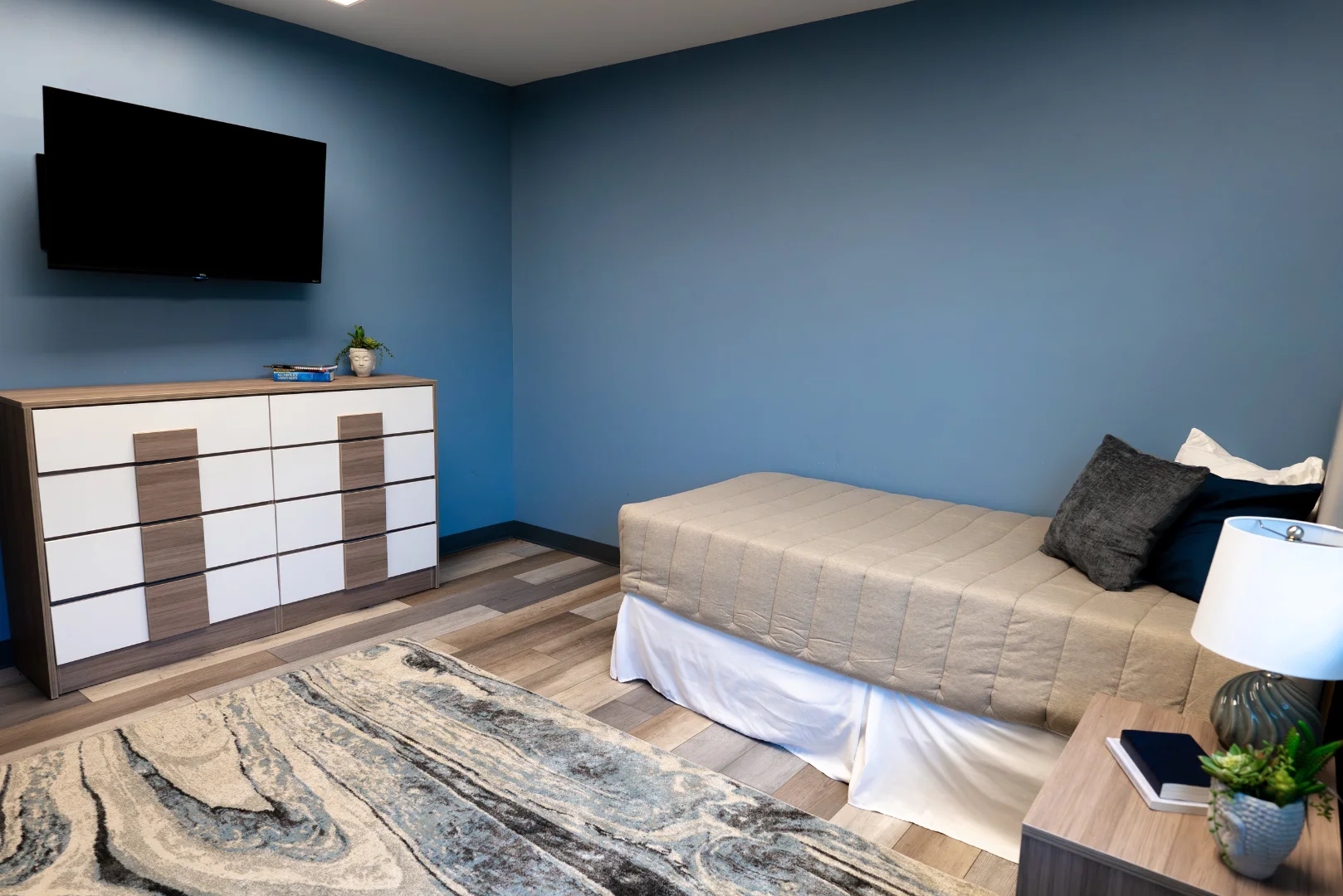Benzodiazepine Addiction Treatment
Benzodiazepines are a class of drugs used to treat anxiety disorders, insomnia, and some types of seizures. When used as prescribed, benzodiazepines can be helpful in relieving anxiety. But if you begin abusing them, you can quickly develop a tolerance, and tolerance is the beginning of a slippery slope that could lead to addiction.

What are Benzodiazepines?
Benzodiazepines are a class of psychoactive drugs that are commonly prescribed to treat various medical conditions, primarily related to anxiety, insomnia, and certain seizure disorders. They work by enhancing the effects of a neurotransmitter called gamma-aminobutyric acid (GABA) in the brain, which results in a calming and sedative effect.
Doctors prescribe “benzos” to treat several common conditions. These conditions include:
- Anxiety or stress
- Sleeplessness
- Alcohol withdrawal
- Seizures
- Muscle tightness or pain
- Pre-surgery tension
There are over 2,000 types of benzodiazepine medications worldwide, but only 15 are currently legal in the United States. Some common benzodiazepines include:
- Diazepam (Valium)
- Lorazepam (Ativan)
- Alprazolam (Xanax)
- Clonazepam (Klonopin)
- Chlordiazepoxide (Librium)
- Temazepam (Restoril)
These medications are typically prescribed for short-term use due to the risk of developing tolerance, dependence, and withdrawal symptoms with prolonged use.
How Benzodiazepine Addiction Begins
Benzodiazepines have a calming, relaxing effect, which may cause some people to abuse them. Common side effects of benzodiazepines include:
- Sleepiness
- Confusion
- Dizziness
- Weakness
- Blurry vision
- Slurring of speech
- Poor coordination
- Breathing problems
- Coma
People may buy benzodiazepines illegally or take their own prescriptions more often or longer than they are directed. Additionally, many people mix benzodiazepines with alcohol or other drugs like opioids to intensify the effects. This can increase the risk of addiction as well as serious side effects.
Benzodiazepine abuse is fairly common. More than 17% of people who are prescribed benzodiazepines abuse their medications.
Using benzodiazepines regularly can lead to the development of tolerance. Tolerance occurs when your body becomes less sensitive to the effects of a substance due to prolonged use. In addition to tolerance, people can become physically dependent, resulting in the development of withdrawal symptoms upon attempted cessation. In order to avoid withdrawal, people may continue using benzodiazepines, continuing the cycle of addiction.
Signs and Symptoms of Benzodiazepine Addiction
People who are addicted to benzodiazepines may display certain behavioral symptoms, such as:
- People may need higher doses of benzodiazepines over time
- When they try to stop, they experience distressing physical and psychological effects
- There’s an intense desire to use benzodiazepines
- Quitting proves extremely challenging
- They often prioritize drug use over responsibilities
- Once-enjoyed hobbies lose their appeal
- Social isolation becomes common
- Harmful consequences don’t deter continued use
- Acquiring the drug demands significant effort
- Engaging in unsafe behaviors while using
- Neglecting self-care and health issues
- Requiring higher doses for the same effect
- Inability to control or stop use
- Despite attempts, relapses occur
When someone who is addicted tries to stop using benzodiazepines, they may experience serious withdrawal. Common symptoms of benzodiazepine withdrawal are:
- Anxiety
- Insomnia
- Tremors
- Sweating
- Rapid heartbeat
- Nausea
- Vomiting
- Muscle pain and stiffness
- Irritability
- Depression
- Hallucinations
- Seizures (in severe cases)
- Cognitive difficulties (memory and concentration issues)
- Sensory hypersensitivity
In the long term, benzodiazepine abuse can lead to physical health problems and a decline in cognitive health. Not only that, but an addictive lifestyle can destroy a person’s livelihood. Fortunately, with the right treatment, anyone can recover.
Benzodiazepine Addiction Treatment in Pompano Beach, FL
In Pompano Beach, Florida, people who have struggled with benzodiazepine abuse or addiction can find the help they need to recover in the long term. It’s also important for these individuals to receive treatment for any underlying mental health problems, like anxiety, at the same time. At 1st Step, we offer precisely that: comprehensive dual diagnosis care.
Our benzodiazepine addiction treatment program begins with a medically-supported detox. Since benzodiazepine withdrawal can be serious and life-threatening, it is important to detox under close medical supervision. At 1st Step, our state-of-the-art detox facility is committed to ensuring the safety and comfort of clients as they begin their recovery journey.
After detox, clients transition to our inpatient or outpatient treatment programs where they receive comprehensive, evidence-based treatment tailored to their individual needs. Clients who participate in our South Florida mental health and substance abuse treatment programs will have access to full amenities provided through our center, including excellent care, a wellness center, emotional support, and dual diagnosis treatment services.
If you or someone you love are stuck in the destructive cycle of benzodiazepine addiction, take the first steps toward recovery. You can start by contacting us by calling or texting 1st Step Behavioral Health now at (855) 425-4846 for more information about our Florida benzodiazepine rehab facility.
Take the First Step Today
We can help you get better. Contact us today to find out which program might be right for you, or to begin the process of arranging for treatment.
